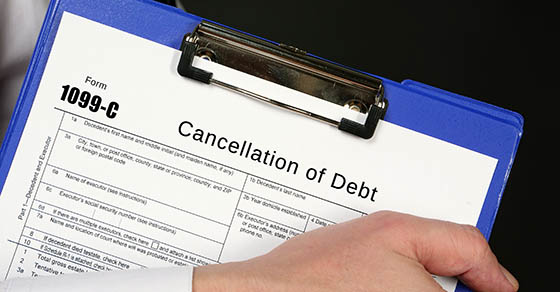How to Navigate the Complexities of Tax Implications When Debts Are Forgiven. A Guide for Businesses and Individuals.
Debt forgiveness can provide much-needed relief for individuals and businesses burdened by financial liabilities. However, it’s crucial to understand that debt forgiveness doesn’t always come without its tax consequences. This guide delves into the intricacies of tax implications when debts are forgiven. This helps businesses and individuals make informed decisions while managing their financial situations.
Debt Forgiveness as Taxable Income:
The IRS treats the amount forgiven as taxable income. This means that businesses and individuals might need to report the forgiven debt as part of their annual income when filing taxes.
Exceptions to Taxable Income:
Certain situations, such as debt discharged in bankruptcy or insolvency, might qualify for exceptions to the rule of taxable income. It’s crucial to understand the specific circumstances that warrant such exceptions.
Business Debt Forgiveness:
Businesses that have their debts forgiven might face tax implications related to the cancellation of debt income (CODI). Understanding how CODI is calculated and reported is essential to avoid surprises during tax season.
Individual Debt Forgiveness:
Individuals might face similar taxation on forgiven debts. Whether it’s credit card debt, mortgage debt, or student loan debt, knowing how to navigate the tax consequences is vital.
Reporting Forgiven Debts:
Form 1099-C, Cancellation of Debt, is used for reporting forgiven debts. Both businesses and individuals should ensure they receive this form and accurately report it on their tax returns.
Insolvency Exception:
Insolvency occurs when an individual’s liabilities exceed their assets. If you qualify as insolvent at the time of debt forgiveness, you might be able to exclude the forgiven debt from taxable income.
Bankruptcy Discharge:
Debt discharged in bankruptcy is generally not considered taxable income. Understanding the requirements and implications of bankruptcy discharge is crucial for those seeking financial relief.
Qualified Principal Residence Indebtedness:
Under certain conditions, individuals might be able to exclude forgiven debt related to their primary residence from taxable income. This provision is essential for those dealing with mortgage-related debt forgiveness.
Tax Planning Strategies:
Businesses and individuals facing debt forgiveness might consider working with tax professionals to explore potential strategies for minimizing tax liabilities while taking advantage of applicable exceptions.
While debt forgiveness can offer a much-needed lifeline for financial recovery, understanding the tax consequences is equally important. Both businesses and individuals should navigate the complexities of debt forgiveness with care, leveraging exceptions and strategies to mitigate potential tax liabilities. Seeking professional guidance can ensure compliance with tax regulations and help make the most informed financial decisions during challenging times. Therefore, consider utilizing marketplaces like IfindTaxPro. You can post your project and find the right tax specialist for you.








